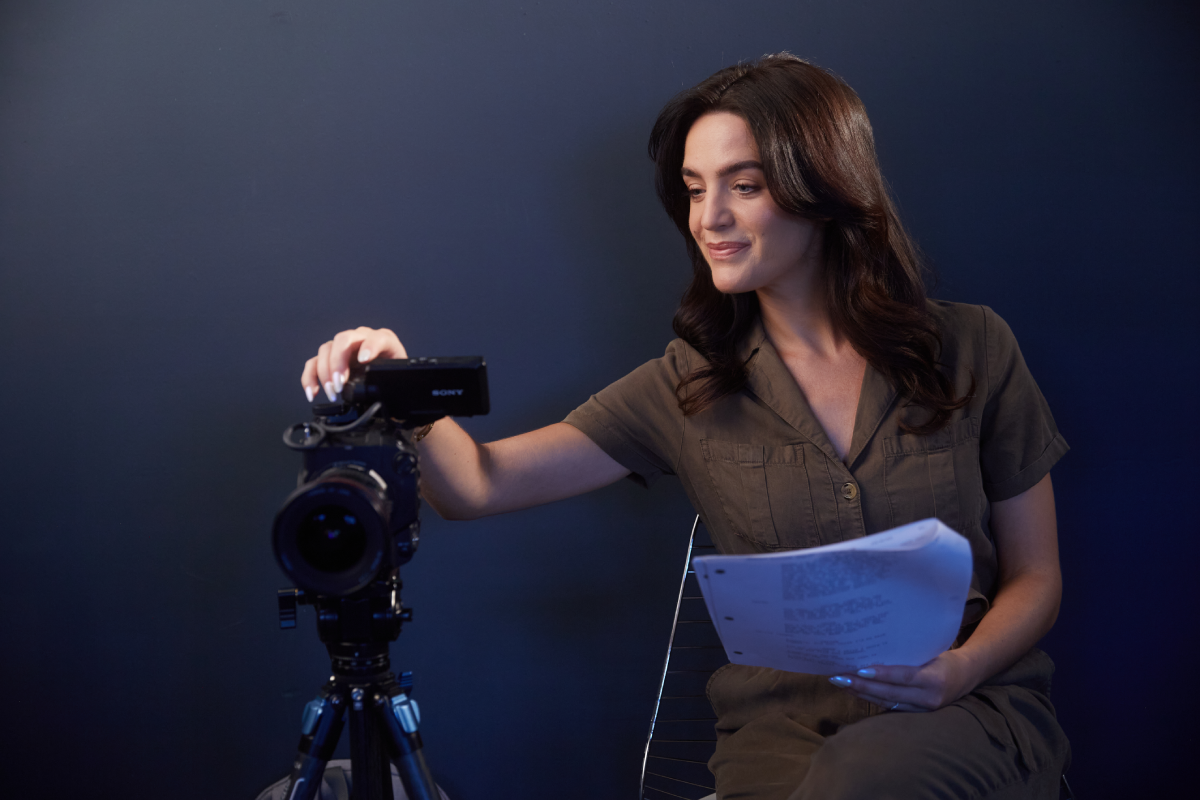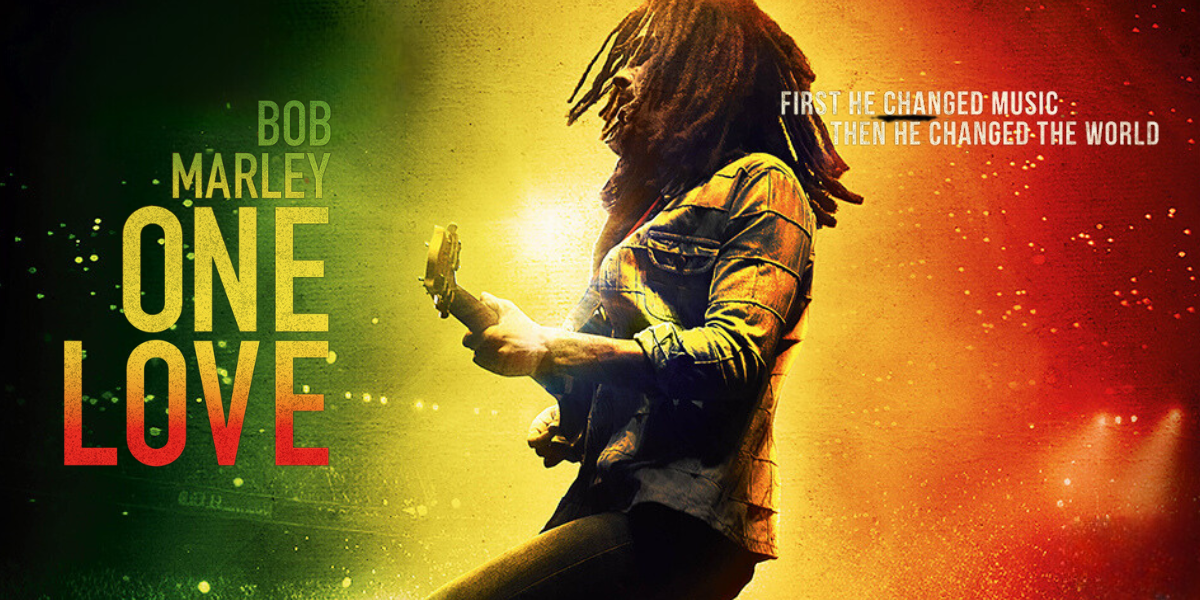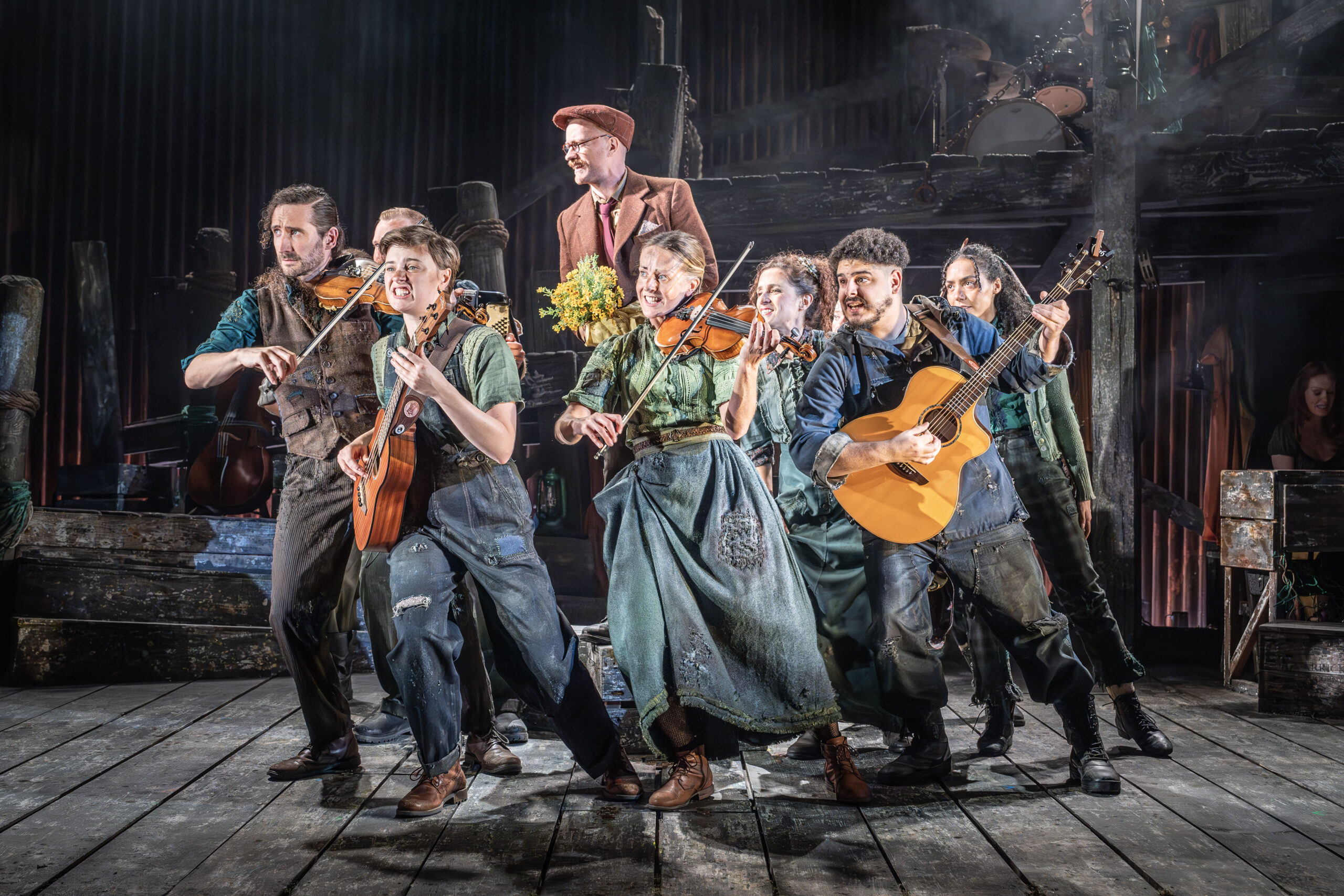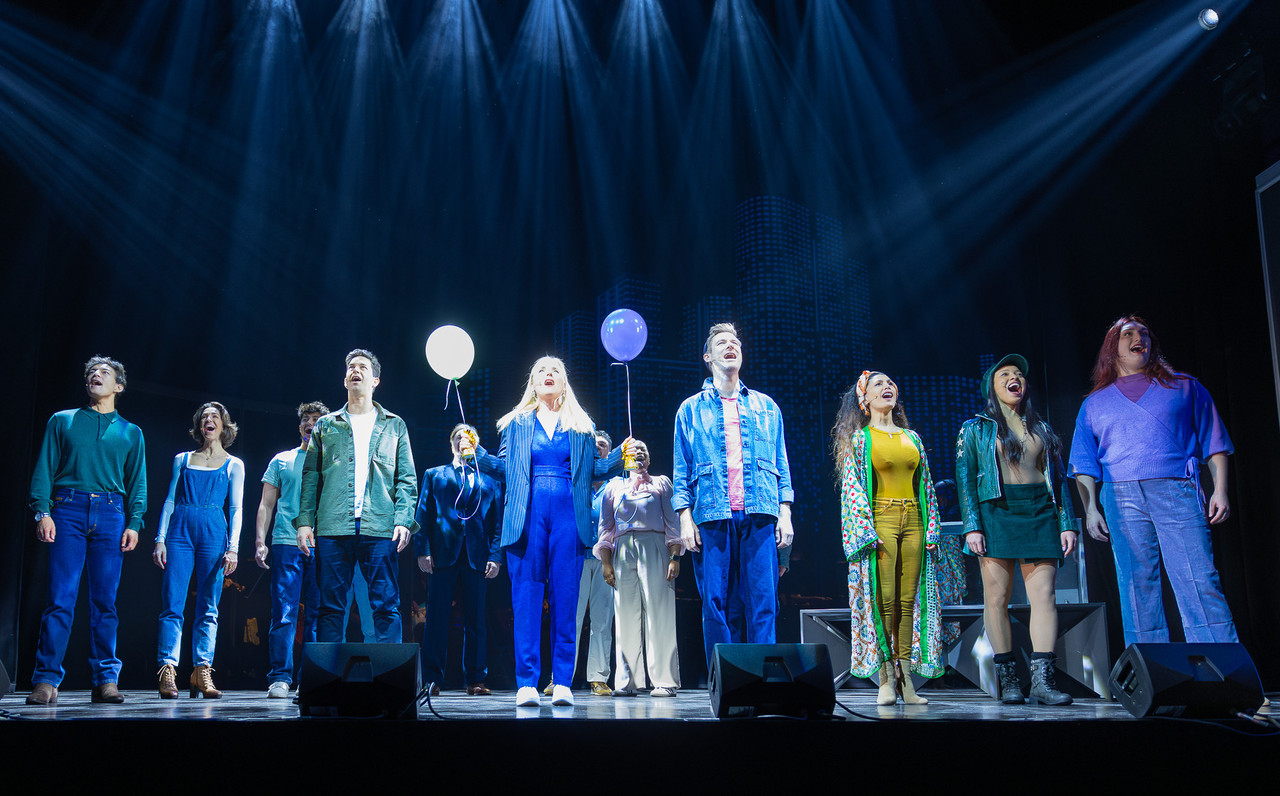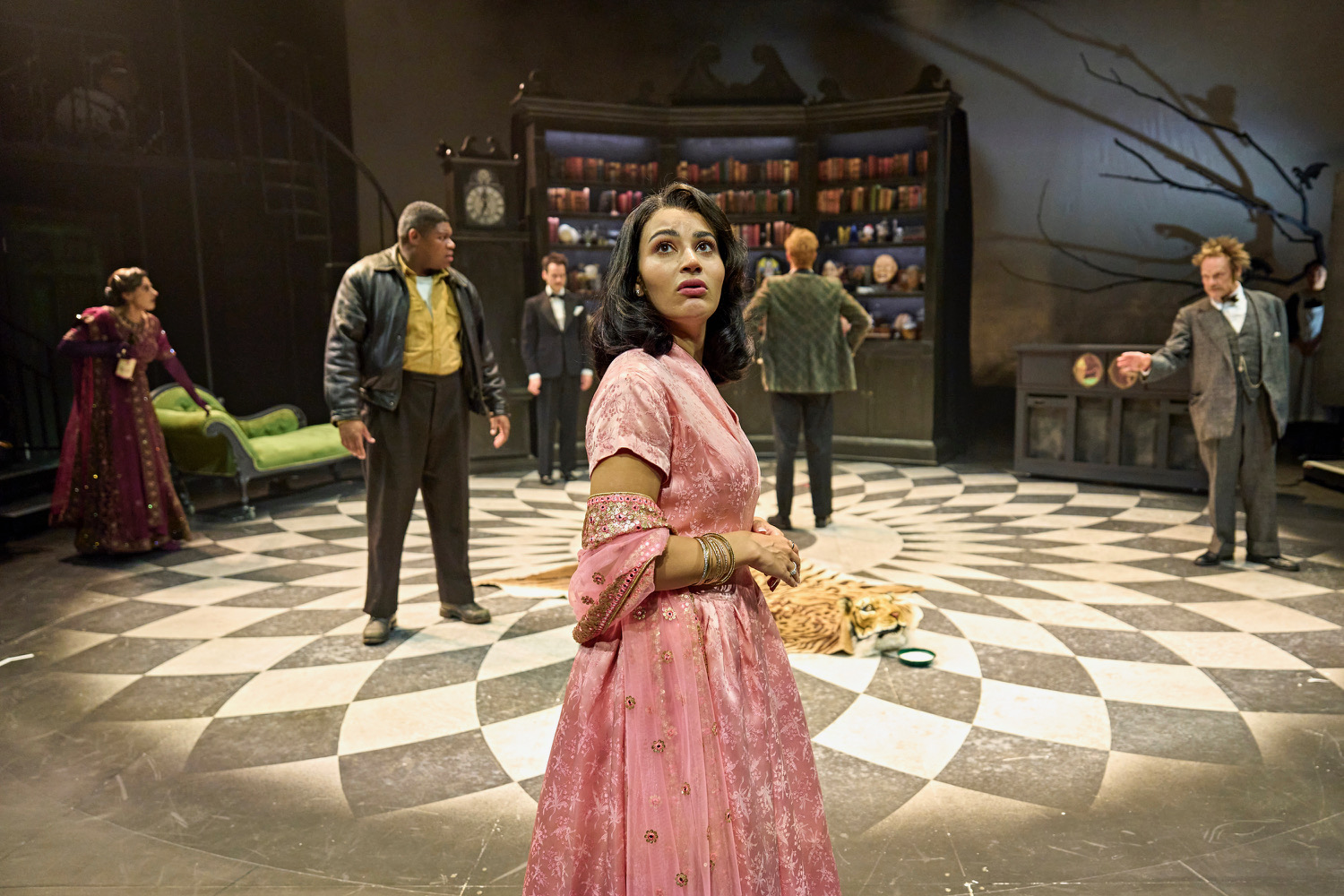Kharmel Cochrane shines a spotlight on the casting process for Bob Marley: One Love, commercials and how she likes to audition performers.
We were delighted to host a private screening of Bob Marley: One Love for Spotlight members followed by a question and answer session with the film’s casting director, Kharmel Cochrane.
Kharmel Cochrane is arguably one of the busiest casting directors in the business. Film credits to her name include Nosferatu, Saltburn, Rye Lane and The Northman, to name but a few. She also works across television (Lady Chatterley’s Lover, Everything Now, Lockwood & Co.), short films, music videos and is known for her love of commercials, recently casting 2024’s M&S Christmas ad.
At the Spotlight screening event, David Flynn, Director of Partnerships at Spotlight, moderated the Q&A session, asking Kharmel questions that had been sent to us by our members on social media. Spotlight members who attended the event also had the opportunity to ask questions and the session provided valuable insight into the casting process of a major biopic.
As well as going into detail about her three year casting journey for Bob Marley: One Love, Kharmel shared insights on:
- What an audition with her looks like.
- Skills and accents on Spotlight profiles.
- Casting directors relationships with agents.
- In person auditions versus self-tape.
- Advice for performers auditioning for TV, film and commercials.
For those who weren’t able to attend, we filmed the question and answer session and you can watch it here:
Or, if you’d prefer, you can listen to the audio in this special episode of the Spotlight Podcast:
Key Insights
- Accents and dialects. Kharmel used the filters on Spotlight to search for performers who had Patois listed as an accent.
- Specialist Skills. In order to find credible performers for the musician roles, Kharmel searched the ‘Skills’ of performers on Spotlight to see how was proficient at playing drums, guitar etc.
- Commercial auditions. As well as being a vehicle for practicing your craft, commercials are a great way to make some money and get seen by casting directors who may remember you for other roles they’re casting.
About the Film
Bob Marley: One Love is based on the life of singer-songwriter Bob Marley, and explores his personal struggles, overcoming adversity, his triumphs and the journey behind his music. The film delves into the relationship between Marley and his wife Rita, who are portrayed on screen by Spotlight members Kingsley Ben-Adir and Lashana Lynch.
Transcript
Edited for clarity.
How did you become attached to One Love?
It took nearly three years to cast the film. An agent who I have spoken to for years recommended me to Paramount’s casting department. I think they called a couple of agents, and said, “Who’d you like?” And then I found myself on Zoom with the director. They definitely thought I was Jamaican, and I was like, “No, I’m half Dominican.” But I was also like, “I want a job, so I’ll be whatever you want me to be.”
We did a Zoom, and started off trying to find ‘Bob Marley’, and I think we did that for about a year.
How do you find a Bob Marley?
You look everywhere. I had the most amazing time with Kareen (Blake Chin), who did all the casting in Jamaica. We did everything, we looked at musicians, actors, dancers, anyone, everywhere. If you’re doing a biopic, at least there’s a physical person that they have to look like, so in some ways, it’s not as hard as some other scripts, where it could be anyone. There are physical parameters. But it’s surprising, quite a few actors don’t want to do biopics.
How involved was Bob Marley’s estate in the film?:
Really involved, and actually, it was lovely. One of the best moments in my career was going out to Jamaica for a set visit. I’m pretty redundant on set, because I don’t have a job, so [I was] just looking, looking at the goats, and they [the crew] were setting fire to a field. At one point, I got hungry, and there’s a whole craft service [there], I went to go and get a snack, and they were like, “No, those are for Ziggy Marley’s kids.” They were ever-present, and it was really great. I grew up listening to Bob Marley, and to be engaging with them was insane.
Did Bob Marley’s family have any say in the casting?
Yes. I think what people might not realise is that the decision doesn’t stop with me. I could sit there and say, “Oh, I think it should be this person,” but ultimately, we get the tapes, we’ll forward them to production, to the director, and then once the director says yes, they then go to the studio, and then from the studio, they’d go to the family.
Sometimes you’d be like, “Yes, we’ve nailed it.” I spent six months trying to find this kid to look exactly like Ziggy, and Ziggy would come back and be like, “That kid doesn’t look like me.” And you’re like, “Oh. Back to the drawing board.”
How is it auditioning actors who are sometimes a bit liberal with the truth about their accent and what they can do?
There was a lot of [me] asking the agent, “Are you sure? Are you sure? Are you positive? Because it’s going to be really embarrassing if they come in and they can’t.” And the agent would be like, “Absolutely.” And then, questionable…
Did the Spotlight accent filters come in useful?
Yep, that’s pretty much how we started. At the beginning, we weren’t allowed to say what we were doing and so we would just form these shortlists by clicking on who’s proficient, and then also using the music filters, [to see] who could play the drums, who could play the guitar, who could sing. But we also found that people are liberal with those too.
That’s why we need to audition in the room.
All of our auditions were in-person. We did lots of self-tapes in the first round, but then we went directly to meetings.
The scale of the film is apparent as well. It’s a huge cast and films across different continents…
76 [in the cast], I think. The tricky thing was getting the Jamaican actors that Kareen cast into the UK as they needed a six-week visa period.
We had a Call My Agent moment, I don’t know if you’ve seen it, that episode where an agent hires an actor out for the day, but they’re [working] on two things, and you think, “Oh, that would never happen.” Definitely happened to us. There was a motorbike involved in getting one actor from one series that they were doing to our set.
What was Lashana Lynch’s journey to ‘Rita Marley’?
She auditioned. And she auditioned with Kingsley [Ben-Adir], they did chemistry, and I remember it vividly. I wasn’t there for Lashana[‘s audition], it was during the summer and I was on holiday with my kids, but we were all watching through Zoom. Trisha at Paramount, who’s our casting exec, who’s the most amazing, wonderful woman, was there. And it was just magnetic watching the magic happen.
James Norton was an inspired choice. He does look like Chris Blackwell.
Which is weird because at the premiere, Chris was there, and I didn’t really recognise him. I don’t know if he looks like him, or if he’s just such a good actor that he really carries it. He was just great.
What’s a typical audition like with Kharmel Cochrane?
It will be me talking absolute nonsense, and then I’ll be like, “Okay, so then do your audition now.” The thing that I really try to impress upon everyone is that I can’t act, believe it or not, I can’t direct. I don’t know anything about directing or acting, I just don’t. All I can do is give you my instinct, which may or may not be right if I don’t have the director with me, But everyone’s there [in an audition] because we want to see them, it’s not a trick or a trap.
We like doing things in person. I go to set as well. A lot of the time, if you’ve got these big Hollywood actors, I can’t really give an opinion if I haven’t seen them. They’re not going to audition, so I like to go to set and feel the vibe. Also, I just like to go on set because usually it’s not in the UK, I get to have a holiday. I’m not a martyr.
You’re one of the busiest casting directors, you’re always putting breakdowns out on Spotlight, how do you manage all the spinning plates of different genres?
I’ve just got a mind that can do lots of things at once. It doesn’t work for everyone. And actually, if I’ve got nothing to do, like at the moment, I’m so lazy, I don’t do anything. I need to be one or the other, I can’t really find a chill place in between. I’ve got kids, so I work my day, and then I stop, and then I start again in the evenings and do my film stuff.
I can remember actors. Other than in the wild where I’m like “uh?”
Does that help you move actors about?
We talked about waiting six or eight months [between auditions and filming], but sometimes we’ll cross over, and you’ll get three auditions, because we will have seen you for one thing. And whilst that’s waiting, I’m like, “Oh yeah, but that person’s great. Let’s see them for…” And so all of a sudden, there’ll be a flurry.
How much of your decision making is guided by instinct or even spiritual awareness?
150%. Nobody listens to me, and nobody believes me but for me, a lot is spiritual. A lot of it is thought and feeling, especially with my career.
When we cast Anya Taylor-Joy in The Witch, she was the second person that we saw that day. We’d seen her for something else, and she didn’t get it. She was the second person, and I knew it was her. I knew it was her from the beginning, but sometimes you have to indulge everyone else.
I wonder what AI would’ve said if you’d ask a machine to cast…?
So this is what I find really, really interesting, because in the advent of self-tape and all of this stuff, I’m just like, “AI can’t do this. It can’t be me, and do all the silly humour.” And that’s why I really like the personal, and knowing people, because you could AI cast a film easily. But they’re not going to get magic. You’ll get a perfectly fine cast, I’m sure, but you’re not going to get something special.
It’s also about relationship management, isn’t it?
I think that’s what people don’t realise, is all the back peddling that goes in, and speaking to the agents. The reason that I got Bob Marley was because an agent had put me forward. Now, if I had never spoken to that agent, met that agent, gone to the theatre with that agent, had lunch with that agent, they would never have put my name forward. It’s 20 years you’ve harvested into a relationship.
Is it eight months to three years before an actor is cast or is that the wait for production to start?
With Bob Marley, if the director liked you, we would ‘pin’ those people. So we’d say, “There’s interest. These are the dates that we have. Check back in with us. We’ll check back in with you.” And the agent is sat there going, “Okay, well, I’m sending them up for this audition, this audition, this audition. These dates clash.” And then we’d check-in, and they’d say, “Have you got any news?” I’d say, “No. Have you got any news on that job?” And then you’d just kind of keep it rolling.
How can actors best navigate the ‘pin’ period that you mentioned?
You’ve just got to do whatever feels good. Just know that everyone’s on your side, trying to make things happen, trying to make jobs happen. I don’t think anyone’s intentionally sat there going, “Let’s just park this for six months and not tell anyone.”
What made you choose casting as a career?
I didn’t even know it was a job. I got into it completely by accident. My cousin knew a director, the director asked me to go and do some street casting and paid me £50 pounds. I was 17.
He said, “Oh, my sister works in casting, you’d be really good.” And I went and worked there for three years. Didn’t go to uni, and then just stayed doing it. I ask myself every single day what else I’d be doing.
How involved are you in all of the projects that come to your company?
Every single part. I do all the creative, I don’t do any admin. They [casting assistants] type up the breakdowns, I approve them.
What are your thoughts on in-person auditions versus self-tapes?
I think it’s such a special interaction, I would say 70% of our stuff is in person. We did a commercial the other day where we said it’s in person for first rounds but if you want to self-tape, self-tape. It was a 50/50 split.
A lot of actors like self-tape because they can do as many takes as they want. I have a real problem with that because I think if you’ve done it 100 times to get to where you’re at, that’s a problem because you’re not going to have 100 chances on set. Especially for some smaller parts. That’s why there’s so many reshoots, because you’ve not worked with that person. There’s no true test of their ability whereas if you’re in the room, you know. Someone can just do it or they can’t. I think there’s more transparency in the room.
There’s good things and bad things in both but I much prefer in person and working with people.
Do you have any advice for performers auditioning for film versus TV?
We cross over a lot. I think historically, everyone always thought if you do a commercial, you’ll never get seen for a film. No one watches TV so commercials, for me, are the best way to make some money to tide you over whilst you’re waiting. I just think they’re great.
We see so many people, I think the quantity is completely different. So for a commercial, you’ll see sometimes 100 people in a day. You’re either right for it or you’re not.
You can practice your craft and do all these things. Keep watching things and reading. I don’t watch that much but I read a lot so you get a real sense of character, which I think always helps.
I think that shows the importance of commercial auditions. You could be auditioning for Kharmel’s commercial and end up in a feature film.
The guy that played ‘Mick Jagger’ [in Bob Marley: One Love] was someone who was suggested through a commercial model agency.
Thanks to Kharmel Cochrane for her candid insight into the world of casting, and thanks to our wonderful Spotlight members for their interesting questions.
If you’d like to attend future Spotlight events, make sure you’ve opted in to receive our marketing emails.
‘Bob Marley: One Love’ is available to stream on Apple TV and Amazon Prime.













